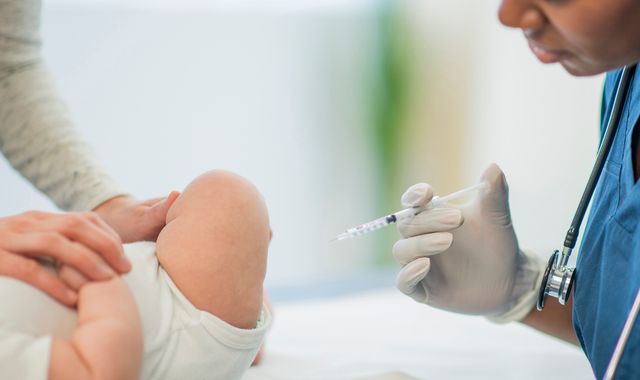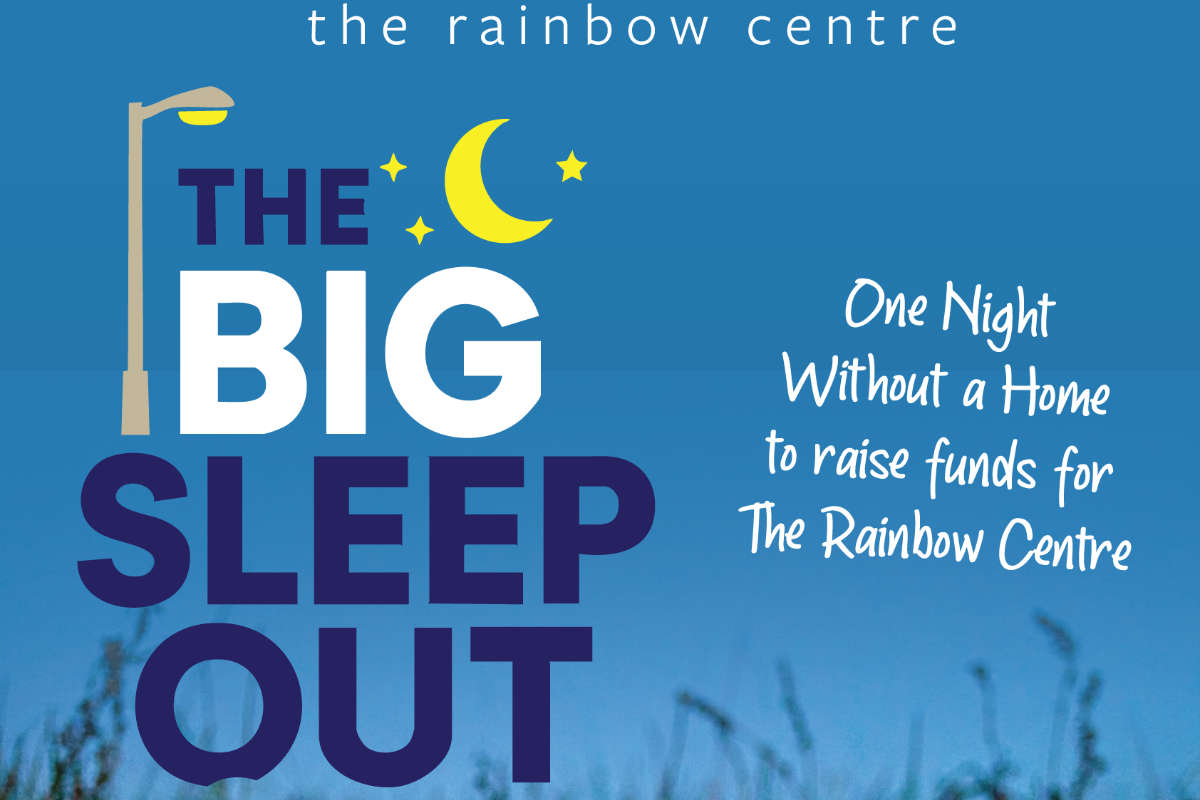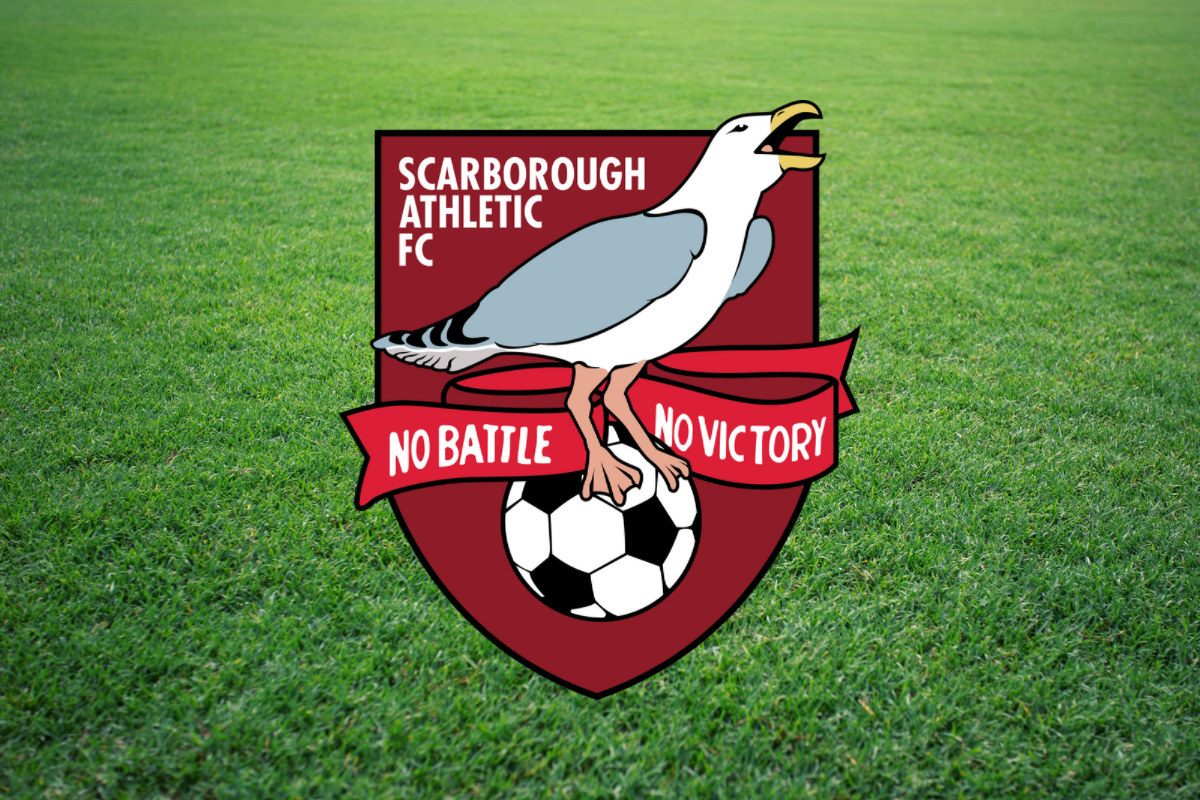
From eight weeks until 14 years old, the NHS recommends a number of vaccines for children and teenagers.
The health service says immunisations are the best defence against potentially serious illnesses, and it is important they are given at the correct time.
Here are all the vaccinations children are recommended to have, at what age and what they protect against.
Babies under one year old
At eight weeks, babies are recommended to have the following jabs:
• 6-in-1 vaccine
• Rotavirus vaccine
• MenB vaccine
The 6-in-1 vaccine protects against the following illnesses:
• Diphtheria - a contagious infection that affects the nose and throat, and sometimes the skin;
• Hepatitis B - a liver infection that is spread through blood, semen and vaginal fluids;
• Haemophilus influenzae type b (known as Hib) - a type of bacteria that can cause life-threatening infections;
• Polio - a virus that spreads easily from person to person and can cause symptoms that affect the brain and nervous system;
• Tetanus - a life-threatening condition caused by bacteria getting into a wound;
• Whooping cough - an infection of the lungs and breathing tubes that spreads easily.
The rotavirus vaccine helps protect against rotavirus, a common cause of diarrhoea and vomiting that can be very common in children and young babies.
The MenB vaccine can protect against a bacteria known as meningococcal group B that can cause serious illnesses, including meningitis and sepsis.
A second dose of all three of the above is administered again at 12 weeks old.
When a baby reaches 16 weeks, the NHS recommends a third dose of the 6-in-1 vaccine, as well as the Pneumococcal vaccine.
This helps protect against serious illnesses like:
• Meningitis - an infection in the brain and spinal cord;
• Sepsis - a life-threatening reaction to an infection;
• Pneumonia - an infection in the lungs.
Children aged one to three
At one year, the NHS recommends babies have their first MMR vaccine.
This gives long-term protection against:
• Measles - an infection that causes a rash and flu-like symptoms;
• Mumps - an infection that causes painful swelling on the cheeks and neck;
• Rubella - often referred to as German measles, and can cause a rash over the body.
As of January 2026, babies aged between 12 and 18 months will also get the varicella vaccine, which protects against chickenpox.
The varicella vaccination will be combined with the MMR vaccine, making it the MMRV.
The vaccine provides around 98% protection in children and about 75% protection in adults after two doses, and is expected to protect around 500,000 babies every year when rolled out by the NHS.
The health service also recommends children having the following vaccines at the age of one:
• A second dose of the Pneumococcal vaccine;
• A third dose of the MenB vaccine.
For babies born before 30 June 2024, the NHS recommends a Hib/MenC vaccine at the age of one. This protects against hib and meningitis C.
Due to the Hib/MenC vaccine being discontinued, when babies born after 1 July 2024 reach 18 months old, they are offered:
• A fourth dose of the 6-in-1 vaccine;
• A second MMR vaccine.
At the age of two, the NHS recommends:
• A flu vaccine.
It says flu can spread easily among children, and vaccinating them helps protect others who are at higher risk of getting seriously ill.
It is offered again to:
• Children aged three;
• School children from reception to year 11;
• From the age of six months to 17 years to those with certain long-term health conditions.
At three years and four months old, a second dose of MMR is recommended for children born on or before 30 June 2024.
The 4-in-1 school booster vaccine is also offered.
This helps protect against diphtheria, polio, whooping cough and tetanus and is given to children before they start school.
Teenagers aged 12-14
From 12 to 13, teenagers are offered the HPV vaccine, which helps protect against human papillomavirus, a common virus that's spread through skin contact.
Girls under 25 and boys born after 1 September 2006 who missed having the vaccine at school can also get the vaccine through their GP.
At 14 years old, the NHS recommends the following:
• Td/IPV vaccine (3-in-1 teenage booster) - this helps protect against tetanus, diphtheria and polio. It's recommended for children in year nine at school, and those at higher risk of the illnesses;
• MenACWY vaccine - this helps protect against meningitis and sepsis.
While babies are given the MenB vaccine to help protect against a common type of bacteria that causes meningitis, the MenACWY vaccine helps protect against four other types of bacteria linked to the virus.
Read more:
Child vaccine rates lowest in more than a decade
MMR uptake hits 15-year low
Missed a vaccination?
The NHS says to contact your GP if you think you or your child has missed any vaccinations.
Most immunisations can be taken after the recommended age.
Some babies and children may also require further vaccines if they are at risk of a particular illness or have an underlying health condition.
Those that have had a serious allergic reaction to any vaccination or are allergic to any of the ingredients will not receive it.

(c) Sky News 2025: What vaccines are children recommended to have and when?




 'Game-changing' AI stethoscopes could detect heart conditions in seconds
'Game-changing' AI stethoscopes could detect heart conditions in seconds
 Brazil implores businesses to attend major climate summit, despite 'second thoughts' amid Trump backlash
Brazil implores businesses to attend major climate summit, despite 'second thoughts' amid Trump backlash
 Calls to charge SUV drivers more for parking amid 'carspreading'
Calls to charge SUV drivers more for parking amid 'carspreading'
 Chickenpox vaccine to be offered on NHS next year, as part of routine MMR jab for babies
Chickenpox vaccine to be offered on NHS next year, as part of routine MMR jab for babies












